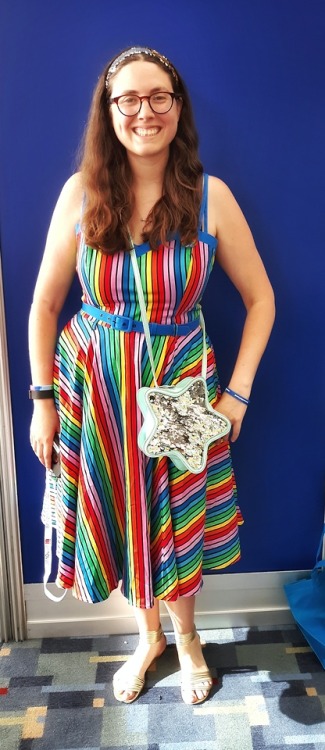#school libraries
…asking hard, fundamental questions. “We can use technology to do this, but should we? Is it giving us the same results as something non-technological?” Angela asked. “We need to see the big picture. How do we take advantage of these tools while keeping information private and being aware of what we might be giving away?”
School librarians are uniquely positioned to navigate this middle ground and advocate for privacy, both within the school library itself and in larger school- or district-wide conversations about technology. Often, school librarians are the only staff members trained as educators, privacy specialists, and technologists, bringing not only the skills but a professional mandate to lead their communities in digital privacy and intellectual freedom. On top of that, librarians have trusted relationships across the student privacy stakeholder chain, from working directly with students to training teachers to negotiating with technology vendors.
I like to keep the content on this blog pretty light hearted, but unfortunately law makers in the state of Georgia are considering Senate Bill 226 that would make it easier to ban books in schools.
This ban would dramatically change the reconsideration process, the process of banning a book from a school. Normally, schools create their own policies regarding reconsideration, but instead the state of Georgia is setting policy requirements that would speed up the banning process and make it easier to take books out of schools.
Why you should be concerned
- Unnecessary escalation of the banning process: The law would require parents to appeal to the directly to the school board first if they want a book removed from the school. Normally, a parent would be required to meet with a teacher, principal, or librarian before they would be allowed to appeal to have a book banned from a school. Often, meeting with the teacher or librarian to discuss their issues with the book is enough to satisfy parents and find compromises that do not require banning the book entirely.
- Not giving reviewers enough time to read book before banning them: The Georgia law would require school boards to make decision on whether or not ban books in 7 days, which gives little time for those in charge of the decision to read the entire book and pressures them to rush to their conclusions.
Here is a link to an article for more information: https://www.ajc.com/education/lawmakers-considering-a-new-process-for-banning-books-in-schools/LN5IARVS2RGX7OXXJG3B6TNMYU/
If you live in Georgia, Here’s a link to contact your representatives:https://cqrcengage.com/alaga/app/write-a-letter?0&engagementId=511206&fbclid=IwAR2DueACxVugAu77P_-5ElOl3iEFFflnTtyNlENko-TIGciZkogwBCO8WeM
School Librarian from Boston, MA. @talya_thelibrarian
by Katrina Wood, one of our volunteer photographers at ALA Annual 2019!
Post link

